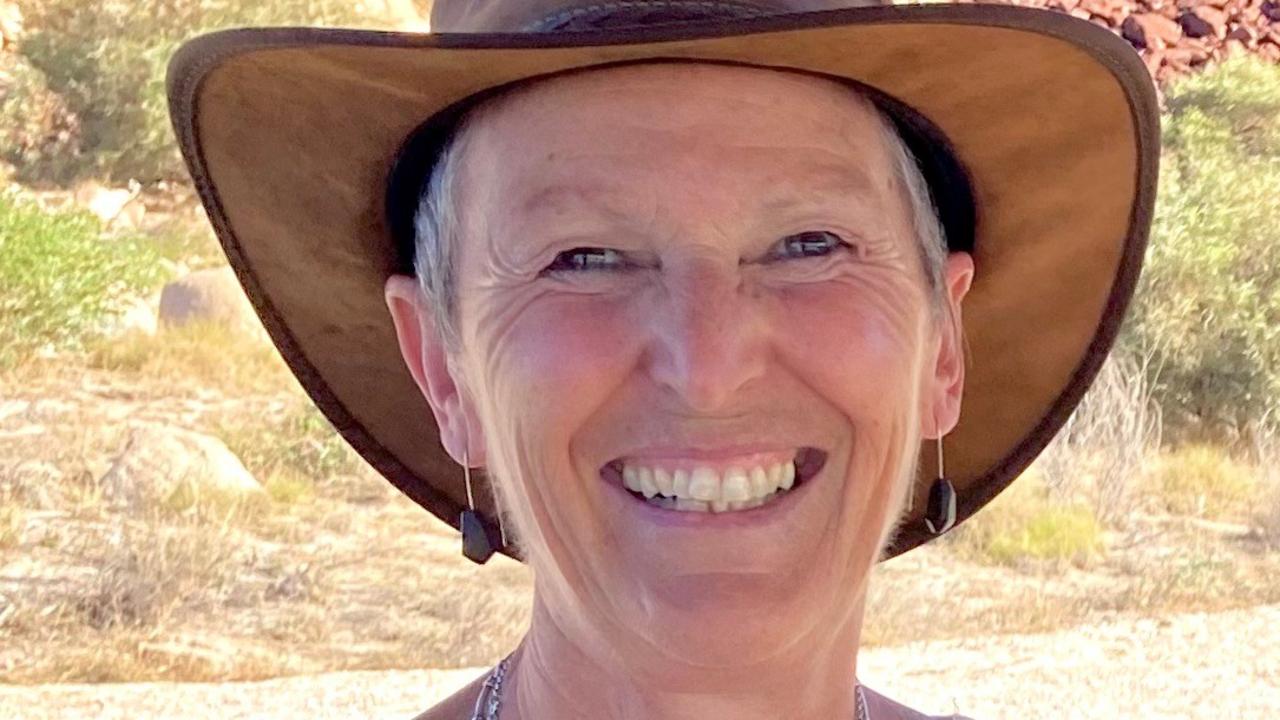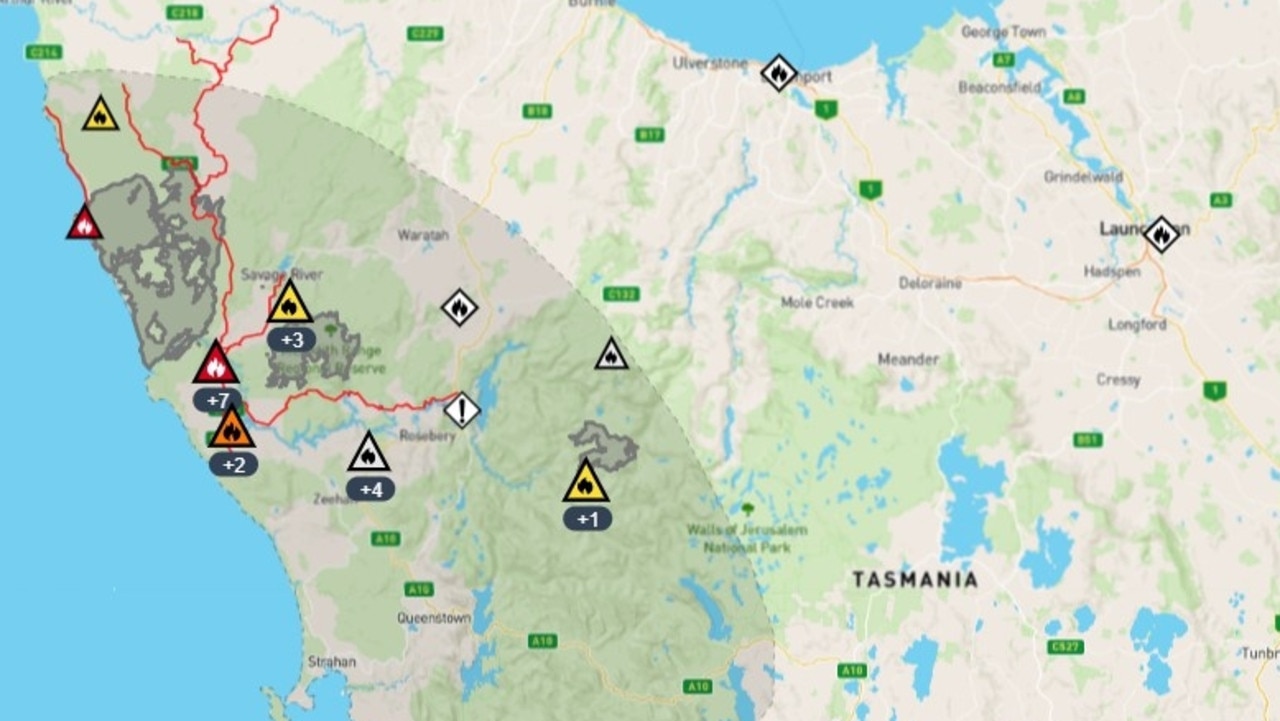North Coast businesses reduce their carbon footprint
From a heavy metal band with a green heart to a cleaning product manufacturer clearing rubbish from the ocean, there are a range of careers being moulded around a reduced carbon footprint.
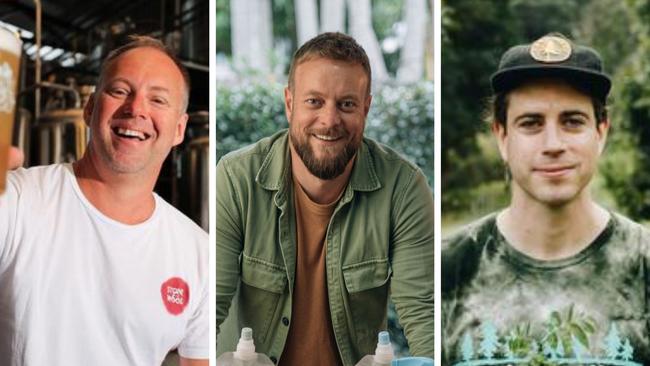
Business owners are taking their environmental responsibilities seriously on the North Coast by implementing some major initiatives to reduce climate change.
As part of News Corp’s Mission Zero project, which is looking toward a net zero future, we have shone a light on some businesses working to reduce their carbon footprint.
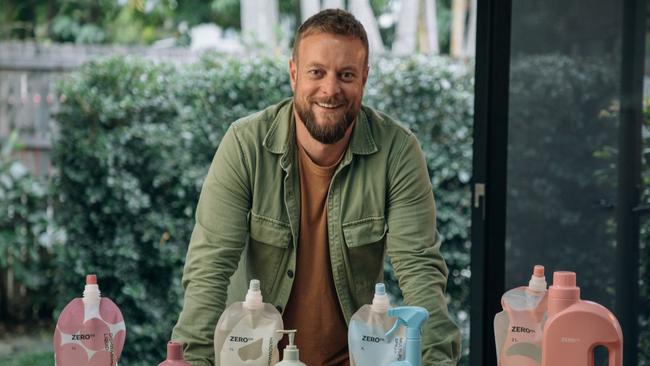
Zero Co
It’s hard to believe this Byron Bay business is only 11 months old.
Founder Mike Smith said the idea came from travels to remote parts of the world with his wife.
“We tried to get as far away from the world as possible and deep into nature,” Mr Smith said.
“I was just blown away by the amount of plastic I saw in these super-remote pockets of the planet.”
Plastic emits greenhouse gases as it breaks down, meaning the proliferation of single-use plastics can have big implications.
The process of creating new products with virgin plastic is also big on emissions.
Zero Co sells household cleaning products and personal products like hand soap in refillable pouches, for use in “forever bottles”.
They are made from recycled “OBL” plastic, which is salvaged from the ocean, beach and stopped from ending up in landfill.
“So far we have pulled almost 10,000kg of plastic out of the ocean,” Mr Smith said.
That plastic is sorted, processed, cleaned and mixed with plastics that are diverted from landfill.
Mr Smith said he had previously run two start-up companies and while there was always risk involved, Zero Co seemed to have paid off.
They wanted to try to sell $250,000 worth of product in their initial start-up campaign in late 2019.
Instead, they sold $750,000 in preorders in that first month, breaking the Kickstarter record for Australia.
“As soon as that happened I knew we were onto something,” Mr Smith said.
“I thought people were looking for a solution.”
Zero Co’s approach to its carbon footprint is about more than plastic.
The company recently completed a full carbon audit on its logistics supply chain and that part of the business is now carbon-negative.
“We brought in a carbon accounting consultancy business to do all of this for us so we don’t make up numbers, pull them out of our bum and say this is what it is,” he said.
“We want to eventually be carbon neutral, if not carbon negative, across the entire business.”
Mr Smith said the effort involved in creating Zero Co had been worth it.
“It costs us more to pull plastic out of the ocean and turn it into a bottle than it would to make that bottle from virgin plastic,” he said.
“It might be twice as expensive but it’s not four times as expensive.
“Customers are now more willing to pay a small premium for a doing the right thing.”
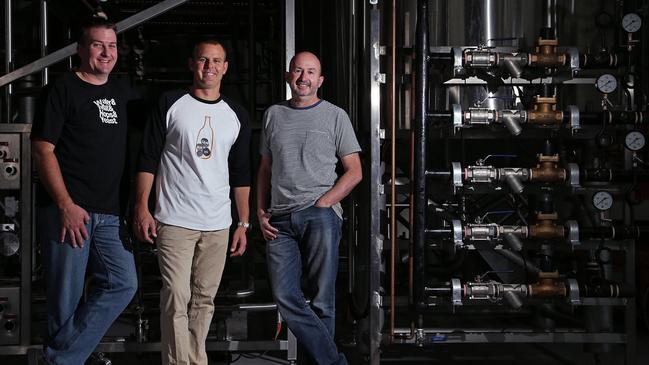
Stone & Wood
Stone & Wood is loved by many for its beverages, produced at breweries in Byron Bay and Murwillumbah.
But the beer label is also serious about its impact on the planet.
“Since we started, we’ve been committed to treading more lightly on the Earth,” the brand says on its website.
“Our Green Feet program captures this commitment to being a sustainable beer brand.”
The Stone & Wood Green Feet program has focused on the company’s energy, water and waste.
The program has also considered how they work with raw materials, supply chains, packaging and transport.
“Through Green Feet, we’ve reduced our water and energy consumption rates in line with the most efficient 25 per cent of the world’s independent brewers,” Stone & Wood said.
“In other words, the amount of water and energy it takes to make our environmentally friendly beer is significantly lower than the industry average.”
The brand makes bottles and packaging materials from 70 and 50 per cent recycled material respectively.
In March 2020, they brewed their first beer made with recycled water to celebrate World Water Day.
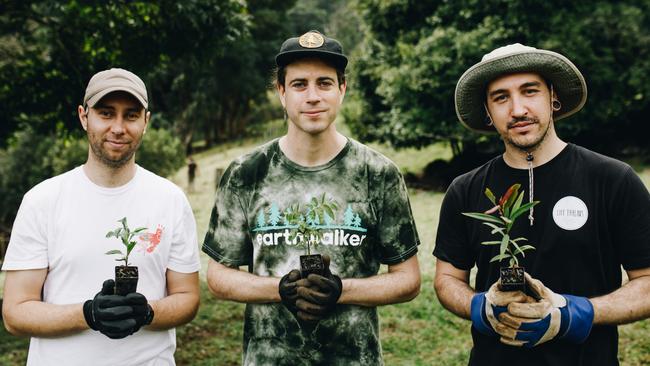
In Hearts Wake
Byron-based heavy metal band In Hearts Wake takes its footprint seriously.
The group offset the emissions produced in creating their fifth album, Kaliyuga, through a biodiversity project in Western Australia before it was even released.
They hosted a massive tree planting in the Byron hinterland to celebrate the release of the album and pledged to plant a tree for every record sold.
The group engaged a carbon accountant to make the album carbon neutral.
They also planned to make a documentary to help other bands make climate-friendly albums.
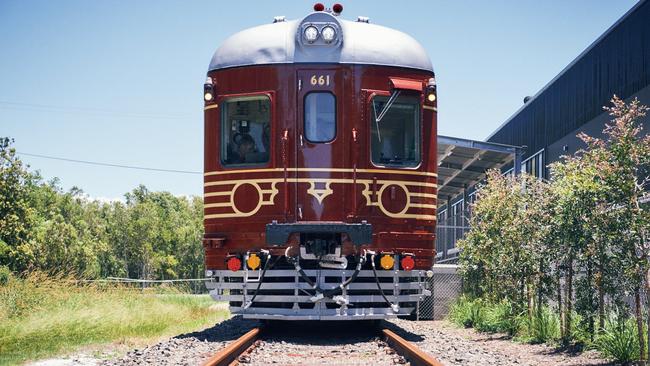
Elements of Byron Resort and Spa
People thought the idea was “nuts” - running a restored 1949-era train between Byron Bay and North Beach powered purely by solar energy.
But for four years now, the Byron Bay Solar Train has been delighting travellers and train buffs on 3km coastal track with enough power left over to go back into the grid.
KTQ Group development director Jeremy Holmes said people thought the idea was a bit “nuts” and there was some initial objection to the plan but it had all come together using some of the latest technology from across the globe.
A team from KTQ Group, who own Elements Resort, gathered motors from America, batteries from Korea, and chargers out of Switzerland.
They also got flexible solar panels, which wrap around the curved top of the restored train, from China.
The train has capacity for 92 seated passengers and the track, which remain the property of Transport for NSW, passes through littoral rainforest, endangered coastal wetlands and over the stunning Belongil Creek.
“We are really proud of what we have achieved here - the train hasn’t missed a run in four years,” Mr Holmes said.
He said a lone protester on the tracks on their first trip in December 2017 was a distant memory.
“It was a boiling hot day in the middle of summer and we had a function and all the speeches, and then we took off and there was a lone protester in a wheelchair on the level crossing,” he said.
“It stopped the train for about 10 to 15 minutes.
“Some people who lived along the railway line were concerned - it was a fear of what might be - but they’re all massive supporters now.”
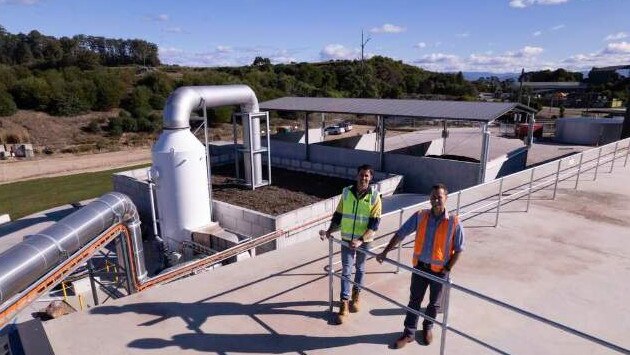
Local councils
While not businesses, local governments have been taking leadership on climate action.
Tweed Shire Council has been a big player in the area with the recent completion of its $7.7 million Organics Processing Facility.
It’s effectively a giant compost heap, but more expensive and more high-tech than your backyard bin.
The council’s director of sustainable communities and environment, Tracey Stinson, said it was one of the council’s “key achievements”.
“By 2040 we want to have zero waste; it’s a key part of that,” Ms Stinson said.
The council introduced its three bin system a few years ago.
“As soon as we did that we reduced the amount of waste going to landfill by 20 per cent straight away,” Ms Stinson said.
The council was sending that organic matter to Queensland to be processed but now, it will go to the processing facility which began operating in September.
The facility has a 99 kilowatt solar system to offset part of its energy use and it is being operated by SoilCo.
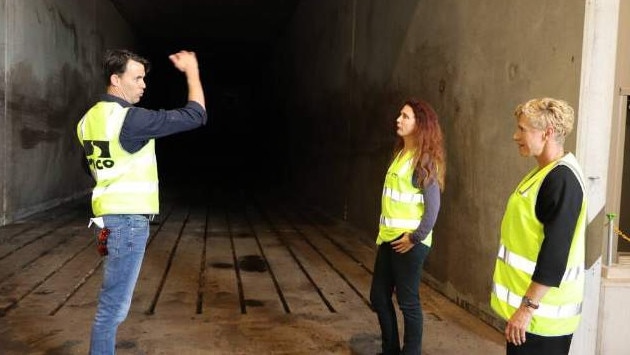
She said the alternative, of organic matter ending up in landfill, had significant greenhouse gas implications.
“It’s really problematic because when you put it into an landfill it becomes an anaerobic process,” she said.
“That produces methane which is 20 times more potent than CO2.”
The council’s approach means those nutrients can instead go back into the earth through a better process.
She said SoilCo was looking to supply the compost product through large-scale contracts.
This also means transport, and emissions associated with it, has been cut down dramatically.
Ms Stinson said 16 completed projects under the council’s renewable action plan had saved them $650,000 each year and reduced the council’s greenhouse gas emissions by 912 tonnes per year.
They have also added 607 kilowatts of solar capacity.
She said the measures made “good business sense” but they were also about “local government demonstrating leadership particularly with respect to climate change”.
Byron Shire Council is meanwhile planning to build a bioenergy plant and a solar farm.
For more on this series go to: www.missionzero2050.com.au
Share your feedback or story: missionzero2050@news.com.au



